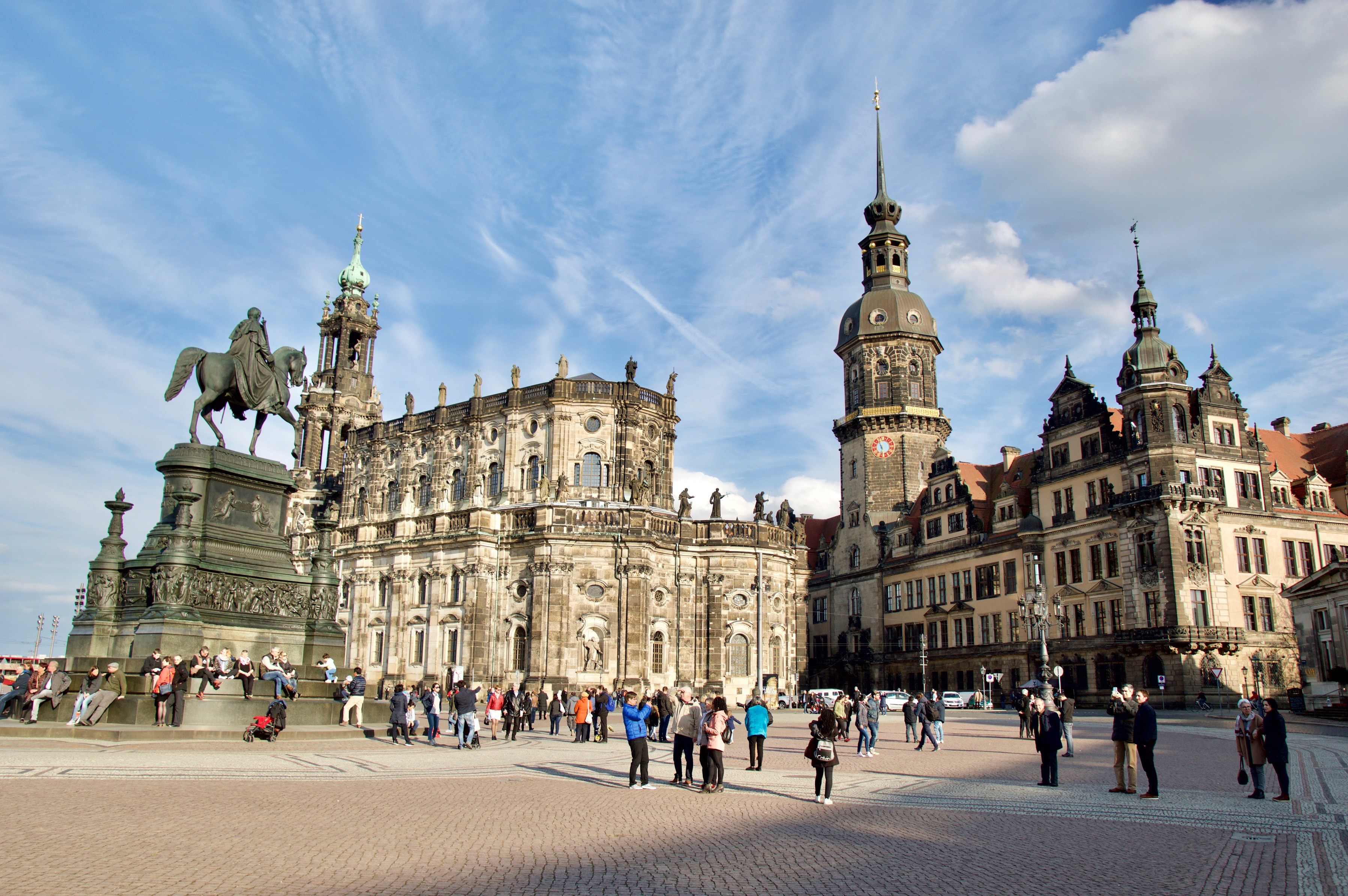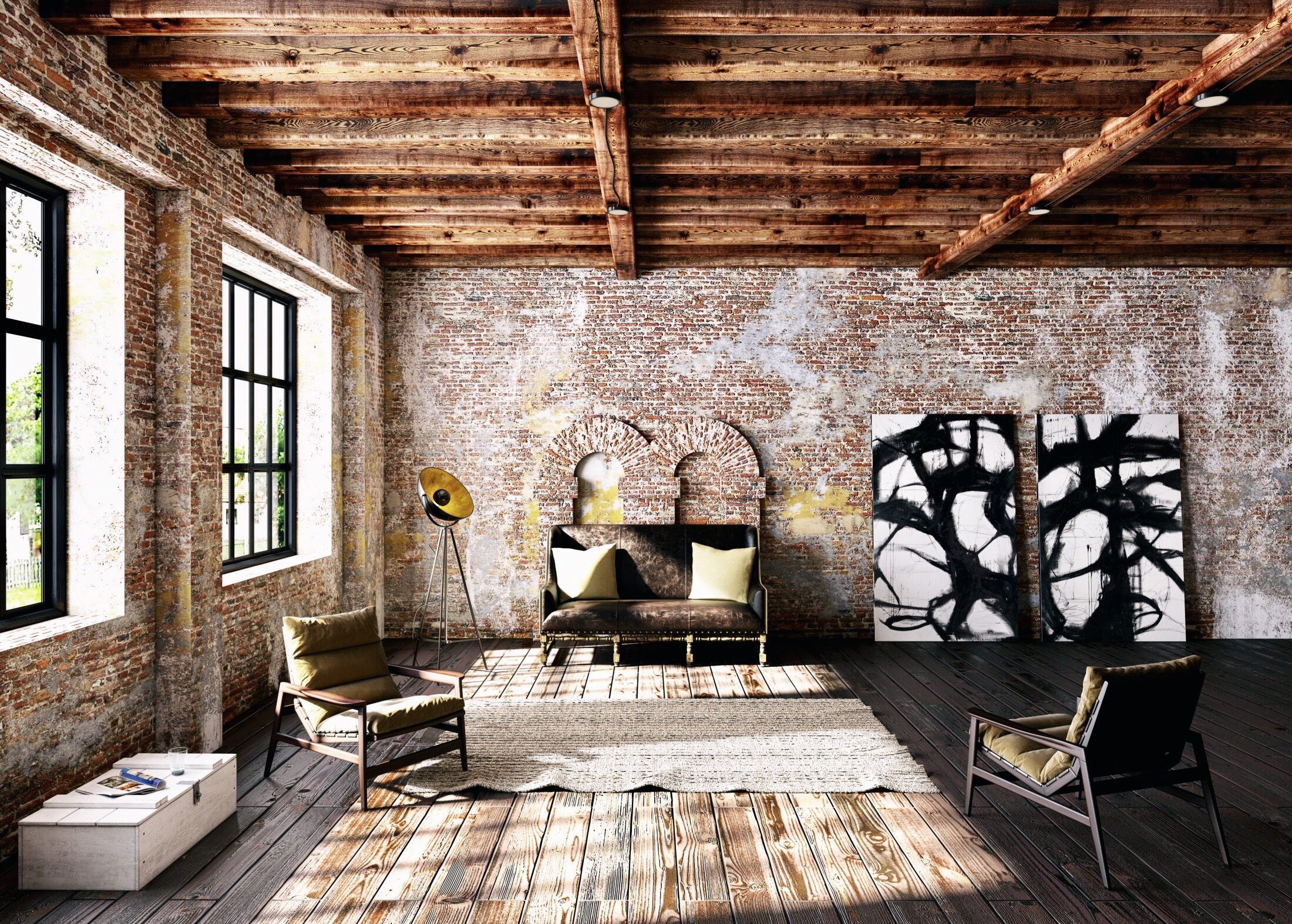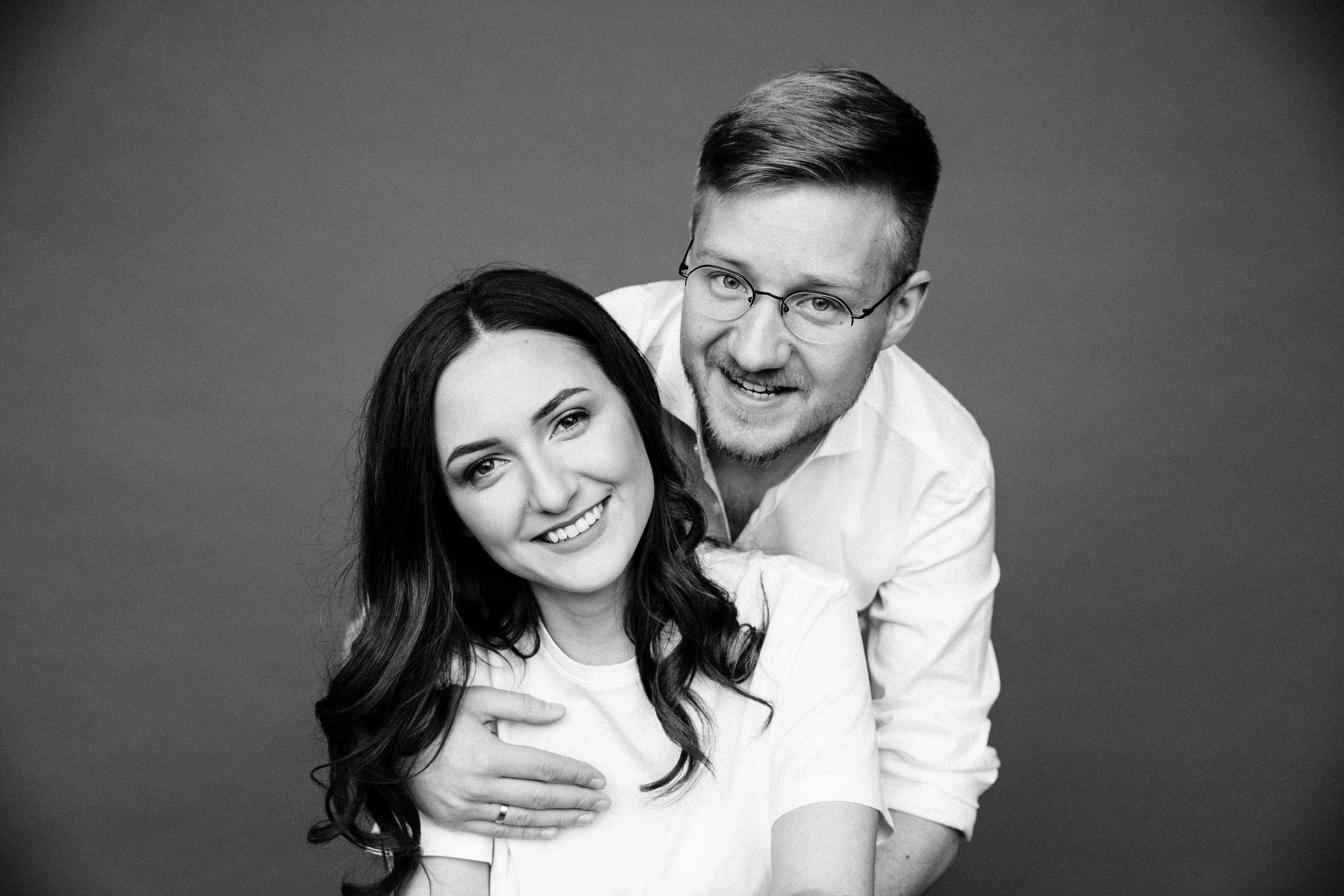Life in Germany through the eyes of my wife

There are quite a few encouraging articles on the Internet about successful IT emigration to almost any country in the world. Of course, these are mostly success stories, albeit thorny, but always with a happy ending. Nevertheless, we all know that failure stories can bring even more benefits to the researcher, because success, at times, is associated with simple luck, while failures are often due to systemic causes.
So I decided two and a half years after moving to Germany to write something demotivating about this period of my life.
I opened my post with generalizations of expectations from Germany, who wrote immediately after the move, found there is a lot of bile, Maslow's pyramid of needs, which sociologists have not used for a long time for their intended purpose, but have not found anything there, in which I would really be disappointed.
It seems that you really need to admit that if you move to Germany, having a contract, drama in your life, if this does not stop, then at least it is postponed for a long time: you have an interesting job, new acquaintances, the opportunity to travel and enjoy life. Before you begin to think of Russophobia at every step, and the German media suddenly start watering you with anti-Russian propaganda (despite the fact that you don’t look at them fundamentally and don’t read, of course), you need to burn out at work for a long time depression. How quickly this happens and whether it happens at all depends on the harmony in your family.
Therefore, I would like to address this post to those professionals who are going to move to Germany with their family. I asked my wife how she survived these 2.5 years of my professional happiness, looked for the meaning of life and reached the point where I opened the 3D visualization software in Germany.
A little help: Lena and I moved to Germany at the end of 2015, after I found a job as an engineer in a company that develops CAE software SimulationX. Before the move we lived in Moscow and were married for 1 year.Estimated reading time: 15 minutes
Interviews I will be diluted with our photos of Dresden and Saxon Switzerland.

- How long and how did you move to Germany?
- I moved to Germany, to the city of Dresden 2.5 years ago with my husband.
- What did you do before the move?
- I graduated from the Moscow University of Design and Technology (MGUDT) and worked as a designer for one year in Samsung. There I was engaged in graphic design of promotional products and the design of branded service centers.
- At what point did you decide to move to Germany?
- It is all overdue after 2014, after the history of the Crimea in the country began to develop unpleasant mood for us. We talked with my husband and decided that if possible we would move to Europe ... Germany was, of course, first on the list for consideration, because her husband studied there in exchange in his student days and spoke German.

- When you moved, did you already speak German?
- Until the moment when we decided to move, I did not learn German at all (I knew English quite well), but since Husband sent a resume mainly to Germany, back in Moscow I went to language courses. Before the move, I finished courses A1 and with this level I went to Germany.
- What were your expectations from Germany before the move?
- We immediately discussed that it would not be easy, that there would be all sorts of difficulties. But what difficulties it could be, I could not even imagine. I only expected that I would have difficulties with the language, and I encountered this almost immediately: people spoke a completely different language than we did in the courses. Sometimes I did not understand anything that I was told.
- They didn't understand English either?
- I did not try to speak with anyone in English, because there was a feeling that in Germany you need to immediately learn to speak German. I do not know how to explain this ...

- What were your plans when moving to Germany? What did you plan to do?
- On the eve of departure, I opened the IP in Russia and thought that I would be engaged in design remotely with Russian firms. But as such, I did not have a customer base, because before that, I only worked as an employee and never looked for projects myself. Therefore, my remote work with Russia did not work out at all: I have not completed a single project.
In addition, immediately after the move, I went to German courses. It was intense with daily classes of 4 hours, and I went to level A2 with refugees from Syria. For them, the state paid for the courses, we, of course, paid for everything ourselves.
- Did you have any problems with them, culture shock?
“At that moment I was open to everything new, I wanted to make friends with them, to find some points of contact, but I didn’t work out any friendship with Syrian girls or young people, because ... I don’t even know ... I didn’t find they have nothing in common. At some moments I was very annoyed that they are very noisy, do not respect my personal space. I am always very worried that my behavior does not hurt anyone, so as not to disturb anyone. From the point of view of the Russian person, they seem to lack a culture of communication and a culture of behavior. In their environment, this is normal, for me it is not normal. I like to communicate calmly. Perhaps this was the main problem.
- Maybe there was some kind of harassment on their part?
- No, there was no molestation, but there were various jokes that I was too serious. I was more likely to be treated like a school with nerds.

- How is the overall situation with the refugees in Dresden? Scary to walk the streets?
- Refugees are very few, but because of this they seem to be "highlighted" on the street, because they are very different in appearance from the Germans, women wear hijab, in their arms 2-3 children are not a very typical situation for Germany. Especially older people, the Germans, look at them with condemnation, openly show discontent on their face.
- Has it ever happened that the refugees attacked someone, or maybe they were attacked?
- Recently there was one case in the tram. I suppose that it was a Turk (not a refugee), and I began to pester him, again, I suppose, Russlandand (Russian German). It was a drunken man of about fifty, with a bottle of schnapps in his hand, at first he muttered something for a long time under his breath in Russian, obscenities, and then approached a Turk, who was wearing dark glasses and began to tell him in German: “Show me eyes, I want to see your eyes ", just from scratch. As a result, it came to the assault, and at that moment the rest of the passengers joined in, began to separate them, one woman reported on communication with the driver that the passenger had attacked a foreigner. As a result, the driver stopped the tram and landed a Russian.
- With refugees, everything is clear. Tell me how long you learned German and what did you do after that?
- I learned German to B2 level in about 6-8 months. It is difficult to say for sure, because only the exam results I waited for 6 weeks. This coincided with the beginning of autumn, I received my certificate, I was no longer going to learn German, because there was no such need, and I was faced with the question of what should I do next and what to do. It was a very difficult time ...
Even when I was learning German, a thundercloud was already hanging over me ... my husband and I were waiting for me to do something, not just learn the language, his relatives didn’t understand very well what my plans were despite the fact that at my age I have to give birth (I was then 24 years old). And then I started a real depression. I can hardly remember that period ... I could not look at myself in the mirror, because I despised myself and my helplessness.

- Regarding work: did you consider any ways to earn money, go to work as a cashier, for example?
- There was no talk of this, we had enough money from my husband's salary, besides there were small savings, and there was no need to think about how to survive. Any profession in Germany requires at least Ausbildung - three years of study, something like a college or college, secondary vocational education. I was not sure that I wanted to study for another 3 years as a seller, so I didn’t consider such work seriously. I wanted to realize myself in my profession, as I was confident in my sense of style, color, composition. In the summer, I began to draw, it seemed to me that it could be profitable if I was engaged in an illustration ... But everything went wrong, I didn’t have a clear plan of action, because I was in absolute prostration, all my ideas were cut off from life, so probably nothing happened.
- Have you tried to look for a job as a designer, to send a resume?
- To begin with, I have not found a single job of an interior designer in Dresden. I sent out a resume for the vacancies of the architect's assistants as soon as I moved, but they answered me in few places, and I was embarrassed to call me by phone. And where they answered, they wrote to me that other candidates were more convincing. I wrote a so-called. “Initiative letters” even if I saw that there were no open vacancies in the company, but in these cases I did not receive any reply.
- What can you generally say about the design market in Germany, as you then imagined it?
- I was hoping that everything would be about the same demand as in Moscow, especially the interior design, which I was focusing on. But there were practically no such vacancies. There were architectural bureaus who were looking for architects for themselves, but naturally, I could not qualify for such vacancies. There are many small companies in Germany, a maximum of 10 people, and they are looking for people very precisely. They do not need, as we do in Russia, a person who will engage in some kind of “common activity” who shifts the papers, or an assistant of the person who shifts the papers, etc. I thought to go to some architectural office at least someone, but “at least someone” they did not need, they needed specialists with extensive experience, which I absolutely did not have.
Nevertheless, I overcame this winter, which was a dark period in my life, when I was just drifting like a fish. I reflected a lot, and ultimately a solution came to me, but it didn’t happen very quickly. I think if I went to a psychologist, maybe it would be faster, but nevertheless, this pause helped me to understand what I really want to do.
I decided that I will be engaged in visualization. It was a part of my work before, but now I decided to concentrate on visualization, and not on design, since there are tendencies in the market for the division of labor between the designer and the visualizer: the designer does not have to do the visualizations himself, but increasingly gives it to outsourcing. I reasoned that since I can’t look for design orders, because Design is always very close communication with the customer, in which you need to find out a lot of details that did not allow me to do my level of language.
To advance to the goal of becoming a visualizer, I decided to undergo retraining and went to ... now don't laugh ... to Moscow, yes, because there actually is a cool school. There is nothing of the kind in Dresden, of course. I traveled to Moscow and went through a week of intensive rendering and refreshed my knowledge, learned something new, and upon arrival began looking for projects in Russia and the CIS. This approach very quickly gave the result and after two weeks I found the first project and began working with Kazakhstan.
They responded very quickly, we made a test project and started working. The payment was very low, but I dumped and agreed to this payment. As a result, in a couple of months I earned my first 550 € ... Then the work went downhill. First, the girl designer, with whom I worked, left this company, and I did not receive money at all for the apartment that we tortured for more than a month. Then a new designer came and wanted to redo everything. As a result, we bargained over the fact that for all previous edits I will receive 50% of the price, but I did not receive them either.

Visualization from Lena's website
- Why did you not immediately try to look for German clients?
- I was afraid. I had no experience in running such projects, but I wanted everything to be fine-tuned, so I decided to gain experience first, working in Russian. If I work with the Germans, I already have some kind of not very advantageous position: I’m kind of a migrant ... And if I’m still doing a bad job, it’s not with the best.
As a result, with zero activity in the search for German clients, I waited for the fact that my portfolio from the Internet was found by a German from Dresden, wrote that she really liked my renderers and offered to meet. Naturally, I was delighted, although I did not know what to expect from this.
We met, she turned out to be a very nice girl designer of my own age, who worked at the company and took design projects for herself as a part-time job. We agreed that we will work with her. But it was not so simple ... we did our first project only in half a year.
“Why did it last so long?”
- I think she simply did not have suitable projects, besides, I delivered a very high cost, perhaps. She asked me how much a render would cost one house, I called the price, she said “thank you” and disappeared.
However, her interest added to my confidence, I realized that there is some prospect for work in Germany, at least there is such a chance that she will be in demand ... We met for the first time in November, and since January I began the first steps towards the design of the German IP.
I went to a seminar for those who want to establish their own company (be it a simple entrepreneur or a GmbH), in which I was the only student. There I learned the most important thing, that when founding a Saxony company, it allocates € 4,000 to a coach, to help with design, writing a business plan, etc. For me it was a completely new information, and when I told my husband about it, he did not believe me. For some time I was in limbo, because I was afraid to get caught in some kind of mousetrap, because did not understand the German bureaucracy at all. In January, we went to a job fair, and there, too, was a lot of business coach stands that offered assistance in obtaining this subsidy.
- Why did you need this coach? Open IE in Germany, isn’t it the same as in Russia - fill in one form and start working?
- According to our plan, we started working with my coach (whom I found at a job fair) in February, and from May 1, my company should have been framed. This caused a shock to people who were engaged in registration. They said that if I start in February, then maybe only in August can I open up. But this is all subject to the receipt of this subsidy by me ...
The very design of the IP took place online through the ELSTER website (on which it was necessary to register and verify). I filled out a questionnaire there and after a month and a half they sent me my TIN.

Another visualization
- So how did the coach help you?
- To begin with, I myself could not fill this form myself. I carried his printout with me for several weeks, showed it to everyone and we gradually filled it out along with the coach and tax consultant. In this form, it was necessary to specify a lot of different data, incl. my estimated income, choose a form of taxation, choose whether I pay VAT, so that I can deduct it later, how best to describe my activity, so that it falls under artistic activity (this was necessary for the social insurance office to pay half of my social insurance) .
In addition, with the coach, we took everything from the basics: what I want to do, as I see it, he helped me to draw up a business plan, according to which I should go full-time in 2-3 years. Full employment in my case is 12-14 working days per month, the rest is: accounting, customer search, presale, in general, that is not directly paid.
It was very useful to get his advice on finding customers and communicating with them. We played a variety of situations when a client tries to lower the price or understates the significance of the work, how not to get upset if some clients do not want to have affairs with Russians, etc.
As a result, everything turned out well, in May, I filed a tax filing document with the notification that since May 1, I started my business. In June, I received a full subsidy.
Further, oddly enough, everything went according to my business plan. In May I managed to get the planned one paid working day ... Exactly one day, but I received it! I formed a project just with the girl with whom I met earlier. She quit at that moment and also opened her PI, and she had a project for me.
It was a visualization of a plot with four identical private houses, each for one family, which had to be done for a construction company in a small town in Saxony.

- Taking into account the new experience, tell us what the German 3D-visualization market is like? Who is the main customer? What is the difference from Russia?
- Of course, the differences are quite large and from the very beginning I estimated everything wrong. I thought that in Germany, as in Russia, any project can be given “on the Internet”, put up a task to render something, and you will have a lot of applicants for this job. I was looking for such German resources to offer my services and was ready to take on any project. But such resources. which would be suitable for my kind of activity, I did not find. Everything related to design is basically the design of mobile applications.
Further, in Russia there is a rather large market of apartment visualization for private clients. Interior visualization, though not very highly paid, but very much in demand. And in Germany, as I see it now (we will check), architectural visualization of apartment buildings of 4-5 floors and houses for 1-2 families, usually two-story, are more in demand. The customer may be architectural bureaus, who want to sell their solutions, or even a construction company, which needs to hang up an information board with the image of a house near the construction site. Ordinary Germans usually do not order the visualization of their apartment, because firstly, the average German lives in a rented apartment, and secondly, it is very expensive.
- What is the average price tag on visualization?
- Let's just say, compared to my price tags for the CIS, it is about 10 times more.
- How much will it cost to render a single-family house?
- One picture - from 500 €. The following pictures are a bit cheaper, because already have a model. Now I realized that it was still a low price, I had to raise it.
- What would you advise those who move to Germany for their spouse?
- It is necessary to clearly represent what you will do there. In addition, you need to be a very self-sufficient person, to be prepared for the fact that at first you will be mostly alone until you find something new to you (close in spirit). You can not move into the void, like me: "I will move and there I will decide what I will do." So do not! To move as someone's appendage is very bad. It took me two years to become independent and learn to calmly solve my problems.
- Have you ever thought to return to Russia?
- No, it was not.
- Why?
- And what's better there? I didn’t have a huge list of clients there, and no one as an employee expected me. I did not want to go back to work 5/2 for a fairly modest fee without any particular prospects. Besides, I have long wanted to live in Europe, and now I have spent quite a lot of strength to socialize and I have big plans here, in Germany.

Findings:
- If you are moving to Germany with your spouse or spouse, think in advance about what exactly she / he will do.
- In Germany, especially for engineers, there are a lot of vacancies with tempting salaries in small villages far from big cities. Try to avoid them, even if you are not a fan of parties, because the likelihood of finding a job for a spouse / wife is drastically reduced, and the idyllic types of clean streets and even cute half-timbered houses get bored faster than it may first seem.
- Choose cities with universities. Education in Germany is free, incl. for foreigners. Perhaps the move will be a reason to postpone the diploma of a lawyer or an accountant and finally become an architect or a mathematician. The Germans can easily study in universities and up to 30 years, so you probably will not be a black sheep.
